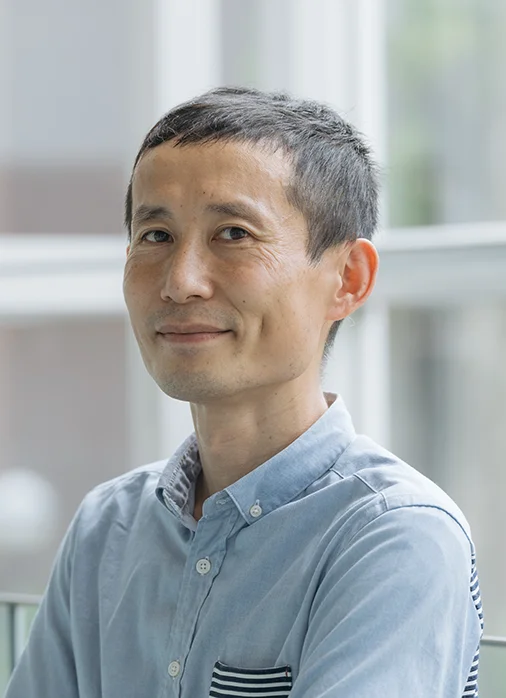Seikei University
Institute for a
Super-Smart Society
The Seikei University Institute for a Super-Smart Society was established in 2020 with the support of the Mitsubishi 150th Anniversary Project Committee.
This institute conducts transdisciplinary research and human resource development for connecting technological innovations with the construction of a desirable society.
overview
institute overview
Society is in the midst of rapid change due to technological innovations including artificial intelligence (AI) and the Internet of Things (IoT). In Japan, the emerging society is referred to as a Super-Smart Society. It is our responsibility to promote and control technological innovations to achieve an optimal society for the present and future generations.
Seikei University, which celebrated its 70th anniversary, established the Institute for a Super-Smart Society in 2020 with the support of the Mitsubishi 150th Anniversary Project Committee. In order for industry/government/university leaders and researchers to cooperate and cultivate a new stage in the history of civilization beyond the boundaries of business fields and conditions, the institute will identify needs and promote projects to satisfy them, and return the results to society.
The institute will undertake transdisciplinary research from a comprehensive perspective in order to link science and technology innovations with the true happiness of humankind. It will also conduct collaborative practical activities in cooperation with local government and companies responsible for socially implementing and practicing technology in the field of solving social issues. Keeping a Super-Smart Society alive, it will then conduct human resource development activities focusing on academic materials development, lecture management, and faculty training for people of all ages who support them. These are our three pillars: transdisciplinary research, collaborative practical activities, and human resource development activities.
message
Inaugural Greeting
member
Seikei University Institute
for a Super-Smart Society
director
- KOMORI Osamu (Faculty of Science and Technology)
vice director
- OGAWA Takanobu (Faculty of Science and Technology)
staff
- ITO Keisuke (Faculty of Business Administration)
- KITAGAWA Hiroshi (Faculty of Business Administration)
- SATO Yoshiaki (Faculty of Law) (Fall semester)
- TAKAHASHI Shuichi (Faculty of Law)
- HAGA Yuriko (Faculty of Law) (Spring semester)
- MURAMATSU Daigo (Faculty of Science and Technology)
- YAMANOI Hitomi (Faculty of Science and Technology)
Executive Advisor
- MIYAGAWA Shigeru(Professor Emeritus, Massachusetts Institute of Technology)
Visiting Fellow
- ABE Keisuke (Professor of Law, Waseda University Faculty of Law)
- KANEHARA Nobukatsu (Executive Director, Sasakawa Peace Foundation
Former Deputy Chief Cabinet Secretary) - KAWAI Yuko (Deputy President, THE BANK OF KOCHI, LTD)
- KITA Yuichi (President, D1-Lab, Inc.)
- SAKAI Shuichi (Vice President, University Librarian, Research Professor of Institute for Future Initiatives, The University of Tokyo)
- TAKENAKA Toshiko (WRF/W. Hunter Simpson Professor of Technology Law/University of Washington School of Law)
- TACHIKAWA Eisuke (Founder, NOSIGNER
President, JIDA (Japan Industrial Design Association)
Board of Directors, WDO(World Design Organization)
Project Professor, Keio University (SDM)) - CHIKAZAWA Ryo (CEO & Co-founder, Autify)
- NAKAMURA Eizo (Specially Appointed Full Professor and Professor Emeritus, Okayama University)
- Nicolas Floquet (Representative Director & CEO, Hearst Fujingaho Co., Ltd.)
- HIRATAKE Masahito (Head of Digital Innovation Center, Mitsubishi Corporation)
activities

Coming Soon
publication

Coming Soon

